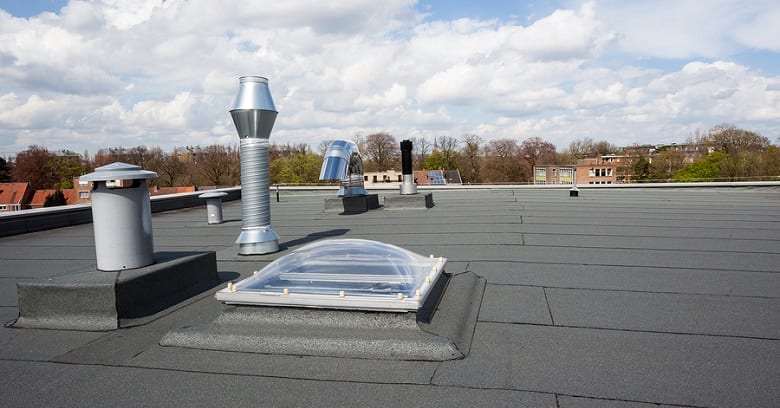Commercial roofs that are often flat unfortunately do not last forever, which you might find especially true if you’ve bought a building that’s somewhat aged and has a roof currently installed.
The roofs on these commercial buildings often haven’t been inspected or maintained for a long time, which leaves you particularly vulnerable to leaks if there aren't some already.
If you find yourself in need of commercial roof replacement, you have many different options to consider for flat roof membranes.
Often these membranes are not often thought about; however you might want to take a look at the different options for your next commercial roof installation.
Different membrane options offer different advantages and disadvantages, so let’s take a look at them and see which might be the best option for your individual situation.
Built-Up Roofing
This particular option is often shortened to the acronym BUR for Built-Up Roofing, one of the most common systems in use today.
It has been around for more than a century and is often used on commercial roofs.
When you use BUR, you basically build up several bitumen layers and in between them coal tar, asphalt, or other adhesives may be used.
Built-up roofing often gets referred to as “tar and gravel” roofing because gravel is usually put on top of this layered system.
This is the best system for your next commercial roof installation if you expect heavy foot traffic on your flat roof.
This commercial roof replacement does come with much more weight, so you need to be sure that your property’s infrastructure can handle the weight.
Single Ply PVC
Although single-ply PVC is similar to BUR when it comes to durability, PVC is incredibly strong and will work for a moderate amount of foot traffic.
This commercial roof replacement is easier and faster to apply as it is single-ply.
Commercial roofs can benefit from single ply PVC because it can be more energy efficient.
EPDM
If you select EPDM for your commercial roof installation, you will find that it is still very durable but at a much cheaper price.
Ethylene Propylene Diene Monomer roofing is often called “rubber roofing” since it’s essentially single-ply synthetic rubber.
Although not as strong as PVC, it can hold up for decades and offers strong protection against wind.
Commercial roofs in hurricane prone areas may benefit from the EPDM system, since it is really durable in high winds.
Make The Right Flat Roofing Decision
There are other options available for your next commercial roof replacement and these three are among the most popular.
If you would like to know what would be best for your particular commercial roof installation, call a roofing company.
Always be sure to talk to a contractor with a lot of experience in commercial roofs who can help you decide which commercial roofing membrane is best for your roof!

